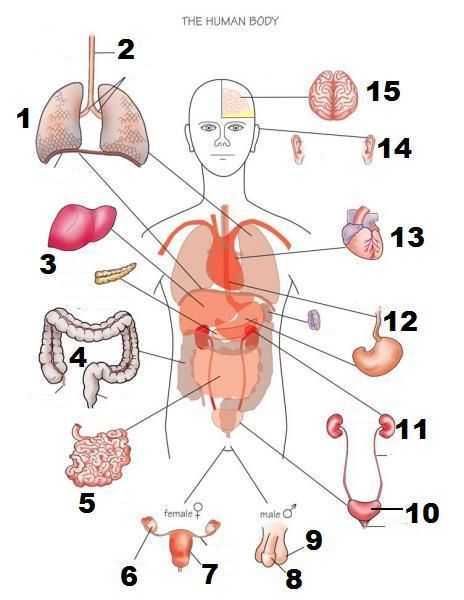Yes, that's a wheelbarrow - sometimes just called a barrow, but mostly we still specify 'wheelbarrow', as context is rarely sufficient to distinguish it from an ordinary 'barrow', i.e. a large bronze age burial tumulus. From 'barrow', we derive the term 'barrow boy', i.e. a financial derivatives trader of lower-class origin. (Now see, Viktor, that's the sort of vocabulary you should be testing here!)jal wrote:Right, so that's a wheelbarrow. I knew the word, just not what is was supposed to meanViktor77 wrote:1 - no idea Wheelbarrow.
The basic rule is: when it's two nouns, do whatever you feel like. In this case, the "correct" spelling is as one word, "pitchfork", but nobody would be confident about that unless they looked it up. Essentially, compounds start out as two words, become hyphenated, and then lose the hyphen. Where you choose to view something on the scale is in practice pretty subjective, depending on how long the term has been around, and how semantically divisible it is. So 'pitchfork' is one word, partly because it has nothing to do with pitch (bituminous tar) or a pitch (an area designated for playing field sports upon, or an attempt to sell something), and most people wouldn't immediately realise it's a fork you can pitch (throw) with; whereas a garden fork is definitely two words, because it's just a fork you use in the garden. Hay fork to me would be in between: I'd probably guess 'hay-fork', but wouldn't blink at 'hay fork' and wouldn't be shocked by 'hayfork'. [Spoiler: wiktionary does indeed have 'hayfork' as one word]The rules about when an English term is one word and when two still elude me... Memorizing...
BTW, Viktor is wrong again. That's probably a garden fork, which is different from a pitchfork. Pitchforks are forks for pitching, and tend to have thin, slightly curved tines, while garden forks have stiffer, straighter tines, for cutting into the earth. Wikipedia tells me that pitchforks are also called prongs or sprongs, and garden forks are also called graips, but I've never heard any of those words (well, i've heard 'prong', obviously, just not in that sense).
I've a feeling there's some more technical word for this, but yes, 'watering can' is what everybody uses. Without the watering nozzle it could be a can, would technically be a pail, but ALIMD would normally just be a bucket.Really, that simple? Ha!8 - no idea Watering can
Ironically! Because there are two types of hoe: draw hoes like this, and "Dutch hoes", which curve the other way, and often (though not always) have a distinct shape with a flat blade held between two arms. It's possible that 'Dutch' in this context just means 'in the opposite direction' or 'stupid', as it often does in English idioms, or it may be that the Dutch, great agricultural pioneers that they are, may have invented it; I don't know.I'm pretty sure I've never heard of that word.11 - no idea A hoe
I'm aware of the concept of hand mowers, but i don't think I've ever actually seen one. Even people with tiny gardens have lawnmowers, even if it's just a flymo!Well, in Dutch we make the distinction, since hand mowers are stll pretty common (Dutch gardens typically don't have large lawns).12 - moterized lawn mower (motor mower?) A lawnmower will do just fine, there's no need anymore to point out the fact it's motorized, though people do say gas or electric lawnmower to clarify the fuel source.
Incidentally, to me a lawnmower is the machine, a 'lawn mower' would probably be a person...
A funnel is also the big pipe on a ship that smoke comes out of. And a funnel bin is a cylindrical kitchen bin, presumably by analogy with the ship feature since it's not like a funnel in the normal sense of the word.Right, so that's a funnel. Knew the word, but didn't associate it with this tool, only in sales jargon and the like.B - no idea A funnel
Actually, Viktor is wrong: this is a morningstar, not a mace. The two are distinguished by the presence or absence of spikes, provided that there is not also a chain (a chain mace is a one-handed flail, with or without spikes).Mace, right, should've known.D - bludgeon? A mace
However, thanks to the rise of txtsp33k and adhd and lsd and whatever else children do these days, there is a lamentable lack of knowledge among the general public regarding the finer details of mediaeval weaponry terminology, and 'mace' is a more common word, so you'd generally get away with it...
NB, this is actually a picture of a bird's foot. The talon is only the claw, not the whole foot; however, I think it's not uncommon, colloquially, to use 'talon' to refer to the entire foot.Also passively in my vocab.I - eagle's claw (or of another raptor / bird of prey) Known specifically as a talon
[FWIW, it's an anisodactylous bird foot. And for some reason we commonly say "bird's foot" rather than, or as well as, "bird foot", even though we don't say "bird leg". Come to think of it, that's a general rule: rabbit foot or rabbit's foot, but never rabbit's leg....]
The medical terms are indeed 'large intestine' and 'small intestine'. However, in common usage we just say 'intestines', for all of it put together, even if we're only talking about one: a long strength of small intestine would still be called someone's intestines (plural, or I guess probably mass, actually), even though a doctor would say it was only part of their small intestine (singular).Singular? Realy? One learns every day4 - bowls, intestines? lower intestines? Large intestine
5 - small intestines? upper intestines? Small intestine







